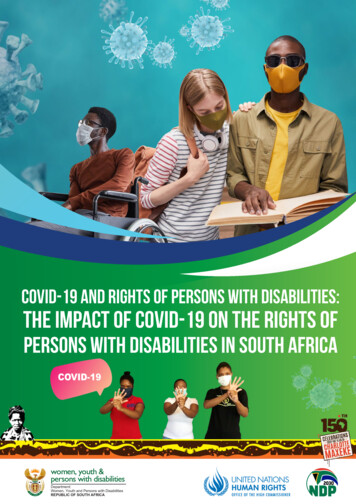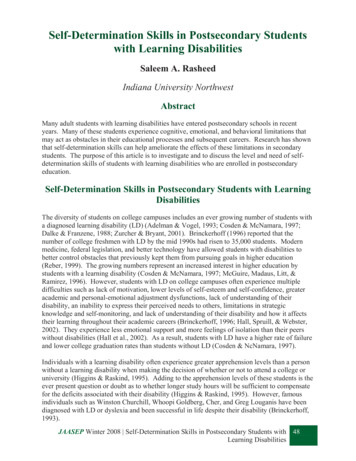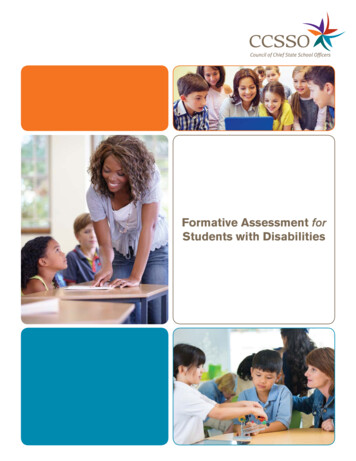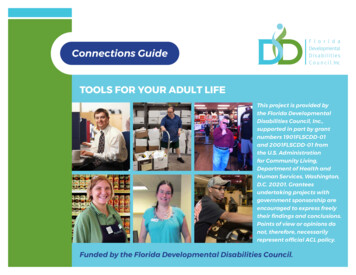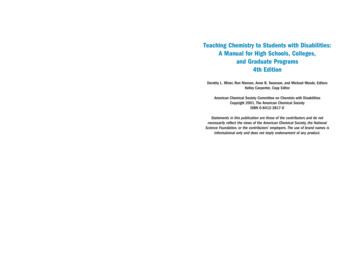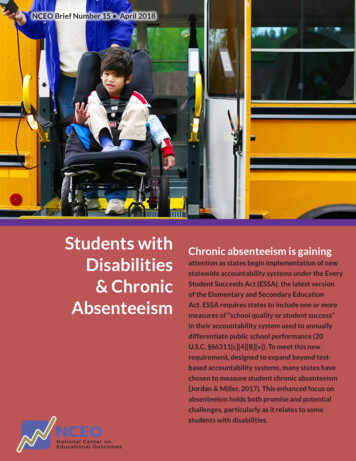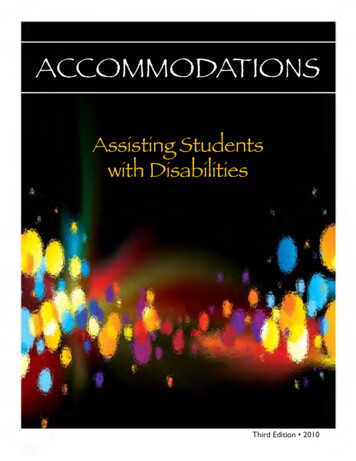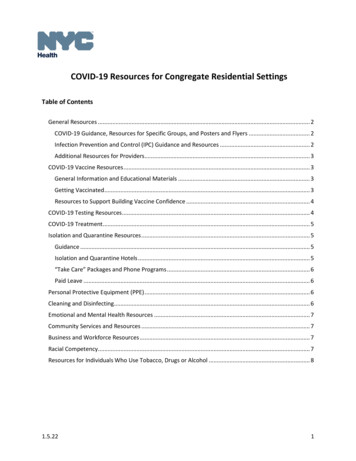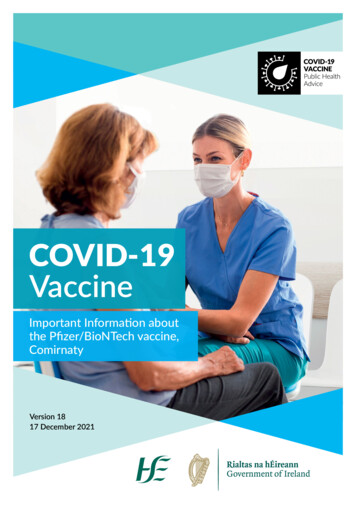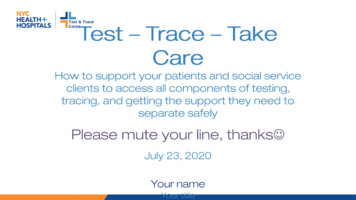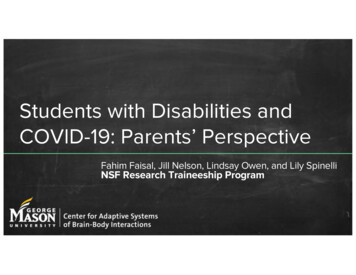
Transcription
Students with Disabilities andCOVID-19: Parents’ PerspectiveFahim Faisal, Jill Nelson, Lindsay Owen, and Lily SpinelliNSF Research Traineeship Program
Research TeamFahim FaisalGeorge MasonUniversity graduatestudent, PhD ComputerScience ProgramJill NelsonGeorge MasonUniversity graduatestudent, PhD ClinicalPsychology ProgramLindsay OwenGeorge MasonUniversity graduatestudent, PhD EducationProgramLily SpinelliGeorge MasonUniversity graduatestudent, Master’sSocial Work Program
IssueThe COVID-19 pandemic forced most schools in the United States to anonline learning format. This study aims to investigate how COVID-19 hasimpacted students with disabilities and their families.“There are just so many children who arejust invisible. It makes me so angry that ourschool that talks about equity in the waythat they do, has been making children withdisabilities and special needs as invisible asthey have.”
Problem
So What?Many students are notreceiving the educationaland supportive servicesthey need to succeedThe lack of services mayhave broad and lastingimpacts on students,parents, and educatorsParents can provide anoften-overlookedperspective on thisissueProviding support toparents may offer a morecomprehensive approachto aid the next generation
Improvecommunicationbetween parents andschool providersParent support groupsthrough schoolsLocal or statelevel advocacySolutionsImprove onlineresource platformswith mental healthand supportiveservices“Mental health professionals have to relymore on what families are seeing andlistening to that and take that into account,which is how it should always be, we knowour kids the best.”
BenefitsImmediateShort TermEmpower parents toseek support andadvocate for theirstudentsProvide parents withsupport andresourcesSupported parents supported students!Long TermAdvocate forfunding for futureparent and studentservices
Study ObjectivesCollect daily andweekly data aboutstudent services,activities, and mentalhealth from parents ofstudents withdisabilities.Conduct qualitativeinterviews to gatherparent perspectives onthe changes to studentservices and unmetneeds.Evaluate the impactsof supportive serviceson student mentalhealth outcomesduring COVID-19.
Study Design and MethodsPart 1: Parent Surveys Parents recruited throughcommunity organizations (i.e.SEPTA, CHADD, NAMI) 10 consented, 7 completed Correlational analyses
Study Design and MethodsPart 2: Parent Interviews Recruited from study survey sample and community 8 interviews: 4 from survey participants Example question: In what ways do you wish your child's support and services weredifferent than they were provided during this school year? Qualitative thematic analysis
Study Sample
Student Services“Our services were cut in half. It's been a littlemoot since we have not been able to get theschool to use an appropriate, research-basedcurriculum for his goals.” Services were received on 26 of 156 surveyed days
“It wasn't really people's fault, there was just no wayto deliver those services virtually the same way, theywould have been done in person, you know it's notlike I think the school or the teachers did a terriblejob.”
“I joined it was kind of like a six week parenting seminar calledimpact parents.it helped a lot just kind of getting through myson's depression and trying to motivate him in a way that wasmotivating to him.”
Parent and Student Mental Health“It was difficult for me. Difficult to the pointthat, you know, I got someone to talk to Ithink that talking with someone just helped meto separate out the things that I could handleand the things that I couldn't handle.”
Parent stress, anxiety, anddepression are associatedwith student emotional andbehavioral problems
Student mental health was consistent across time
“I think the loss of skills in the realm ofhis mental health and his anxiety andhis independence are not beingcaptured at all, because the schoolsaren't being judged on it.”
Student Daily ActivitiesSocial activityScreen timePhysical activity“Because everything is virtual, she didn't have her friendgroups. During the entire year, she had one friend over.She was just disconnected from her social network thatshe was beginning to build.”
Student activities andmental healthMore social activity wasassociated with feweremotional and behavioralconcerns
Qualitative Themes“The special ED teacher whoprovides us specializedinstruction. She's justgood. She would be ourShining Star and she hasactually been one of themain reasons that they'regoing back in hybrid.”
TakeawaysParent StressLimitedServicesSupportStudent MentalHealth
Implications and Limitations010203LimitationsIncreased parentalsupportImprovedcommunicationbetween parents andschoolsIncreased awarenessof and access Small sample size03Fairly homogeneousgroup of participants
Thank you! Dr. Siddartha SikdarDr. Pamala TrivediDr. Stephanie CarmackDr. Linda MasonCASBBI FacultyFairfax County Special EducationPTA (SEPTA) FREDLA Total Family Care Coalition (TFCC) Parents, organization leaders,school teachers and staff whospoke with us and participated inthe project!
George Mason University graduate student, PhD Clinical Psychology Program George Mason University graduate student, PhD Education Program George Mason University graduate student, Master's Social Work Program Jill Nelson Lily Spinelli Fahim Faisal Lindsay Owen. Issue
